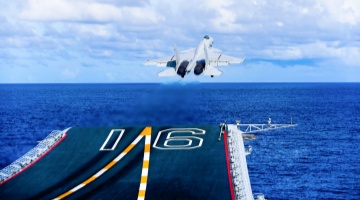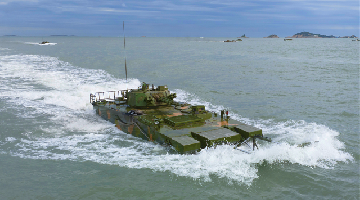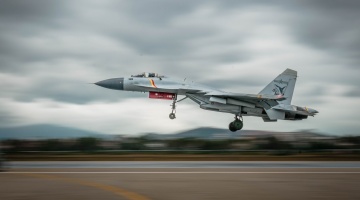By Yu Bing
The Japanese Defense Ministry recently hosted the three-day US-Japan Defense Industrial Cooperation, Acquisition and Sustainment (DICAS) Forum, the first of its kind aimed at deepening the two countries' defense cooperation. During the forum, US ambassador to Japan Rahm Emanuel's remarks that the US' defense industry is overwhelmed and in urgent need of Japan's help drew extensive attention. Analysts said Emanuel had revealed why the US has been continuously loosening the military restrictions on Japan. The international community should be vigilant against Japan taking advantage of the current situation to expand its military strengths and go further down the road of military adventurism.
The DICAS is a new cooperation program agreed upon by the US President Joe Biden and the Japanese Prime Minister Fumio Kishida in April this year. The latest meeting covered repairing US warships and warplanes in Japan, replenishing its ammunitions that have been in short supply because of the US' assistance to Ukraine, jointly producing the Patriot missile in Japan, strengthening the so-called "supply chain resilience", and other subjects.
What the US wants is very clear. It aims to relieve the pressure on its defense industry and release production capacity with Japan's help. As the US is deeply mired in the Palestinian-Israeli conflict and the Russia-Ukraine conflict, its increasingly "hollowed" defense industry is unable to keep pace with its hegemonistic ambition – it cannot even keep up the current inventory in its arsenal or repair and revamp ships in time, let alone concentrating resources on the R&D of hypersonic missiles and other advanced weaponry and equipment. To address the defense industry's low efficiency, fragile supply chain, and lack of talent, the US released its National Defense Industry Strategy early this year, which included intensifying cooperation with allies such as Japan. In April, the two countries reached about 70 deals to enhance their defense and security cooperation, binding them more closely together.
It's worth noting that the US' "loosening" of reins in the field of defense equipment has a limit, only taking Japan as a sub-contractor to produce and maintain part of the equipment. Besides, military industry involves highly sensitive technologies, so the US' expanded cooperation with Japan also faces obstacles. For one thing, the US places rigorous control on the export of high and new technologies, which in a way restricts their military cooperation. For another, whatever Japan does – either producing missiles or repairing ships – will harm the interests of some US military enterprises and is sure to meet their objection.
Yet Japan would not let go of such a precious opportunity, but would go to great lengths to prove its value within the scope outlined by the US. Besides, its rapidly expanding defense cooperation is not limited to the US. For long-term cooperation, it is working with the UK and Italy on the joint R&D of the next-generation warplanes that will be allowed to be exported to third countries, conducting missile tests with Australia, and working with France and Germany to develop the electromagnetic railgun technology. In the short term, naval vessels of the Netherlands, India and Türkiye successively berthed at Japanese ports lately, Italy's light aircraft carrier will pay its first visit to Japan in late August, and Germany, France and Spain all plan to dispatch warplanes to Japan. Through such exchanges and cooperation, Japan is gradually expanding the global presence of its military forces.
The Asian-Pacific region is not an arena for major countries. Regional peace and stability is the precondition for individual countries to truly enjoy security. Japan's attempt to break away from its pacifist constitution and become a major military and political power by leveraging its alliance with the US is too greedy a move that will bring grave consequences and lead it to self-destruction. The US' connivance at Japan's military expansion to serve its own hegemonistic interests and the attempt to make it a bridgehead in Asia is going to backfire on itself. Right now, the constantly "elevated" US-Japan alliance has become a major security hazard in the region that calls for high vigilance in the international community.









